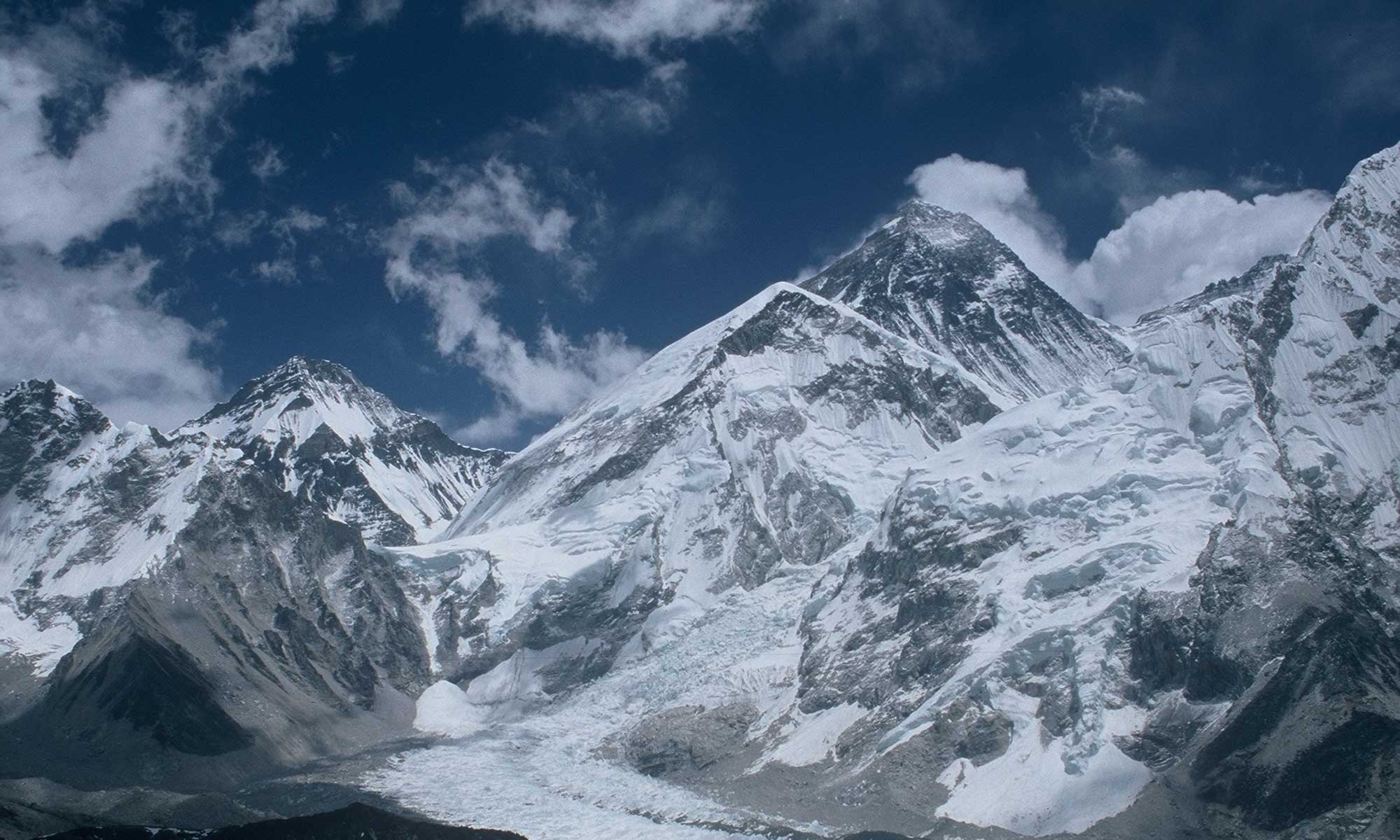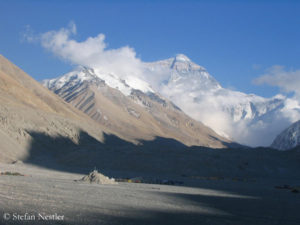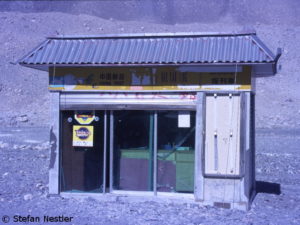“Spirits that I’ve cited, my commands ignore”, wrote Johann Wolfgang von Goethe in his ballad “Der Zauberlehrling” (The Sorcerer’s Apprentice) in 1797. In German-speaking countries this became a dictum – which also describes quite well the current situation in the so-called “Chinese Base Camp” (CBC), at 5,200 meters, on the Tibetan north side of Mount Everest. Several tens of thousands of tourists have visited the camp year after year – and left a lot of rubbish behind.
For this reason, the Chinese-Tibetan authorities have now pulled the ripcord and closed the base camp to non-climbers. A few kilometer further down the valley, near the Rongbuk Monastery, a camp for “normal” tourists who don’t have Everest permits is to be built. “The measures are mainly aimed at tourists, and are for ecological protection. We haven’t closed the mountain on the Chinese side,” Nyima Tsering, director of the “Tibet Sport Bureau”, told the state broadcaster CGTN. “We still welcome mountaineering enthusiasts.”
“One of the coolest roads”
Over the last three decades, the Everest CBC has developed into a tourist magnet – not least because it is much easier to reach than the base camp on the south side of the mountain in Nepal. A few years ago the authorities in Tibet had ordered to pave the road from the capital Lhasa to Chinese Base Camp completely. Travel by bus or minivan was offered and in strong demand. “As a tourist attraction, it’s one of the coolest roads I’ve seen anywhere on the planet,” the US expedition operator Adrian Ballinger enthused in spring 2016.
An attractive package
At the end of this road, a really impressive view opens up to the highest mountain on earth, just 20 kilometers away, which invites to make an Everest selfie. In addition, tourists at the base camp were able to send Everest postcards with special postmarks from the „highest post office in the world“ – and in spring, as a side benefit, they could also observe Everest climbers who pitched their tents at the Chinese Base Camp. This was a package that attracted crowds of visitors and thus made the cash registers ring, but also brought with it the dark sides of mass tourism.
Also corpses are to be brought down
The fact that the Chinese-Tibetan authorities are now opening the base camp for environmental reasons only to mountaineers fits in with their new Everest policy. From this spring onwards, Everest summit candidates will have to pay a “rubbish collection fee” of 1,500 US dollars. Not only the garbage is to disappear from the slopes of the mountain, but also the corpses of climbers who have paid for their Everest adventure with their lives are to be brought down. In addition, the authorities do not want to issue more than 300 permits this year.
Whether the Everest post office will now be moved from the CBC to the new “tourist camp” near Rongbuk Monastery or whether it will remain with the mountaineers has not yet been announced.



